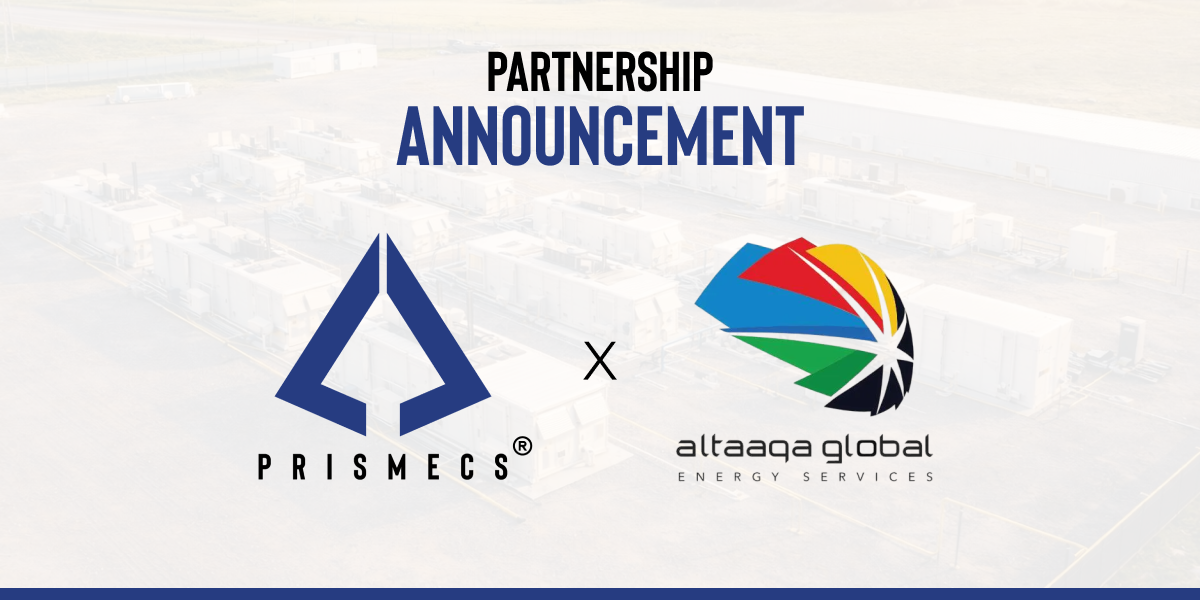
In the fast-paced world of global trade, global supply chain management has become a cornerstone of business success. As we approach 2026, shifting trends and innovative technologies are reshaping the landscape. Businesses must adapt to these changes to ensure seamless operations, maintain cost efficiency, and respond swiftly to market demands. This blog explores the most significant trends in supply chain management for 2026.
The Rise of Artificial Intelligence in Supply Chain Operations
Artificial intelligence (AI) continues to revolutionize industries, and its role in global supply chain management is no exception. Artificial intelligence (AI) is no longer just a technology trend, it has become a core enabler for industrial supply chains. In energy-intensive sectors like power generation, petrochemicals, and metals & mining, AI drives precision, reliability, and operational continuity across the supply chain.
Predictive Equipment Logistics
AI models forecast parts and equipment needs for turbines, generators, and transformers, ensuring critical components are available for EPC, O&M, and maintenance projects. This minimizes downtime and prevents costly project delays.
Optimized Industrial Inventory
AI-driven inventory management systems analyze historical project data and real-time consumption rates of industrial components, enabling dynamic stocking of spare parts and raw materials for plant operations.
Operational Risk Mitigation
By integrating AI with ERP and warehouse management systems, industrial operators can proactively identify bottlenecks, anticipate maintenance needs, and optimize shipment routes for heavy equipment, all crucial for sustaining uptime in mission-critical energy and industrial facilities.
Increased Focus on Sustainability
Sustainability is now a core business requirement in industrial operations. For renewable energy projects, power plants, and petrochemical facilities, adopting eco-conscious supply chain practices ensures regulatory compliance, operational efficiency, and long-term project resilience.
Industrial Green Logistics
Transitioning to low-emission transport fleets for turbine and generator deliveries reduces the carbon footprint while maintaining critical timelines. AI-assisted routing ensures timely delivery of heavy industrial equipment with minimal environmental impact.
Ethical and Traceable Sourcing
Prismecs leverages supplier monitoring and auditing tools to guarantee that raw materials and critical equipment meet sustainability and compliance standards, which is essential for large-scale industrial projects.
Circular Supply Chain Practices
Reusing and recycling industrial components like spare parts and turbine modules reduces material waste while optimizing operational budgets. Integrating sustainable practices directly into project execution strengthens ESG outcomes for clients in regulated industries.
Adoption of Blockchain for Transparency and Security
Blockchain technology transforms the global supply chain by offering unparalleled transparency and security. Companies integrating blockchain improve traceability, fraud prevention, and financial transactions within supply chain networks.
Traceability
Blockchain enables real-time tracking of goods and raw materials, ensuring their origin, quality, and authenticity. Businesses can use blockchain to verify the journey of raw materials from procurement to the final product. Ensuring compliance with regulations and customers' demand for ethical sourcing.
Fraud Prevention
Secure and immutable records reduce the risk of counterfeit products entering the supply chain. Blockchain strengthens authentication measures, preventing fraud and ensuring that only genuine goods and services reach the market. Companies that prioritize security build trust among customers and stakeholders.
Streamlined Payments
Smart contracts automate transactions, reducing delays and errors in cross-border payments. Blockchain simplifies financial processes, allowing businesses to handle payments efficiently. By integrating blockchain with AI, companies enhance supply chain security and boost operational efficiency, ensuring seamless collaboration between suppliers, manufacturers, and team members.
AI, sustainability, and blockchain are shaping the future of supply chain operations. Businesses that adopt innovations boost efficiency, satisfy customers, and stay competitive in a fast-changing market.
Global Supply Chain Management Market
Analysts valued the global market at $31.77 billion in 2024 and project it will grow to $35.30 billion in 2025. By 2033, analysts expect the market to reach approximately USD 81.93 billion. Experiencing a robust compound annual growth rate (CAGR) of 11.1% during the forecast period from 2024 to 2033.
Reshoring and Nearshoring to Mitigate Risks
The COVID-19 pandemic highlighted vulnerabilities in global supply chains, prompting businesses to reevaluate sourcing strategies. In 2025, reshoring and nearshoring gain momentum as companies strive to reduce dependency on distant suppliers. An effective supply chain manager understands the importance of adapting to these trends to ensure smooth operations.
Shorter Lead Times
Localizing production reduces transit times, enabling quicker responses to market demands. Reshoring and nearshoring boost efficiency with supply chain software for tracking, route optimization, and timely deliveries. Shorter lead times are pivotal in maintaining customer satisfaction and competitive advantage.
Enhanced Control
Proximity to suppliers allows better oversight and effective management of production processes. Businesses can ensure quality control, streamline logistics, and improve manufacturer collaboration. These aspects of supply chain management contribute to cost savings. Operational efficiency reinforces why supply chain management is important for long-term growth.
Risk Mitigation
Regional sourcing minimizes disruptions caused by geopolitical tensions, trade restrictions, or natural disasters. By reshoring and nearshoring, businesses can build supply chains that are both resilient and adaptable. The effective supply chain manager implements proactive strategies to mitigate risks and maintain continuity. He proves why supply chain management is important in today’s unpredictable market landscape.
Integration of Internet of Things (IoT) Devices
Integrating IoT devices has revolutionized supply chain operations by enhancing efficiency, visibility, and decision-making. Businesses that adopt IoT solutions can proactively address challenges, demonstrating strong problem-solving skills in managing supply chain disruptions. By leveraging real-time data, companies gain better control over logistics, inventory, and asset tracking, ensuring smooth operations.
Real-Time Monitoring
IoT sensors provide instant tracking of goods, monitoring location, temperature, humidity, and other crucial factors during transit. This ensures product quality and safety and reduces the risks associated with supply chain disruptions. Companies with strong problem-solving skills use real-time data to prevent losses, optimize routes, and boost customer satisfaction.
Predictive Maintenance
IoT-enabled predictive maintenance helps prevent unexpected breakdowns of critical equipment. Sensors collect data on machinery performance, allowing businesses to detect potential failures before they happen. This proactive approach minimizes downtime in warehouses and transportation networks, effectively mitigating supply chain disruptions. Companies with advanced problem-solving skills leverage predictive analytics to reduce repair costs and extend equipment lifespan.
Warehouse Automation
Smart IoT devices automate inventory management, reducing manual errors and improving accuracy. Automated systems track stock levels in real time, ensuring optimal supply chain flow. Businesses integrating IoT-driven warehouse solutions demonstrate excellent problem-solving skills by addressing inefficiencies and preventing supply chain disruptions. With seamless automation, companies can optimize labor costs, increase productivity, and maintain a competitive edge in the global market.
Read Also: Efficient Supply Chain Management in Petrochemical Industry
Digital Twins for Advanced Simulation and Planning
Successfully managing a supply chain is a complex task that requires real-time insights. Digital twin technology creates virtual replicas of supply chain networks, offering businesses a powerful forecasting and strategic planning tool. These digital models simulate real-world processes, enabling organizations to test scenarios and optimize operations without disrupting workflows.
Scenario Testing
The supply chain is a complex system vulnerable to supply fluctuations, supplier delays, and logistics bottlenecks. With digital twins, businesses can simulate potential disruptions and evaluate proactive responses to minimize impact. Companies can develop contingency plans, reduce downtime, and enhance overall supply chain resilience by testing various scenarios.
Resource Optimization
Efficient resource allocation is critical for successfully managing supply chain operations. Digital twins help optimize the distribution of resources, including raw materials, labor, and transportation. These virtual models analyze data patterns to suggest production planning, inventory management, and logistics efficiency improvements, ensuring cost savings and streamlined operations.
Enhanced Collaboration
Supply chain management involves multiple stakeholders, from suppliers and manufacturers to distributors and retailers. Digital twins facilitate communication by providing a shared virtual model, ensuring alignment across the global supply chain. This collaboration enables data-driven decisions, boosts transparency, and strengthens competitiveness in a complex market.
Agile Supply Chains & Dynamic Inventory
Agility in supply chain management is critical when servicing large-scale industrial operations. Rapidly shifting demand in power generation, oil & gas, and metal & mining requires dynamic inventory strategies to avoid costly downtime.
Adaptive Parts Management
Dynamic inventory solutions ensure critical parts like turbines, transformers, and pumps are prepositioned in regional hubs, allowing faster response times for EPC and O&M services.
Diversified Supplier Networks
Prismecs works with multiple industrial suppliers to mitigate risks and ensure continuity, particularly for high-value equipment and specialized materials
Real-Time Demand Forecasting
Integrating IoT sensors and AI analytics allows industrial operators to respond quickly to operational changes, aligning material availability with project schedules. This creates a resilient, responsive supply chain that supports large-scale infrastructure projects.
Emphasis on Workforce Development
Technology drives innovation, but a skilled workforce is key to success. Companies invest in upskilling, technical training, and leadership programs to meet industry demands. Partnering with educational institutions ensures future professionals are job-ready, boosting productivity and retention.
Training Programs
Businesses invest in training to equip employees with data analytics, AI, and blockchain skills. These programs enhance efficiency, decision-making, and innovation. Workshops and certifications help employees stay competitive in a fast-changing digital landscape.
Collaboration Tools
Digital platforms enable real-time communication, data sharing, and project management. Cloud-based solutions and AI-powered tools streamline workflows, boosting productivity and reducing delays. Effective collaboration fosters a more connected workforce.
Leadership Development
Companies develop leadership skills to manage global operations and drive growth. Decision-making, crisis management, and strategy training ensure a resilient and innovative workforce. Strong leadership enhances engagement and business success.
Expansion of E-Commerce and Omni-Channel Strategies
The e-commerce boom reshapes global supply chains, pushing businesses to integrate multiple sales channels. Companies leverage online stores, physical outlets, and social commerce to enhance customer engagement and streamline operations.
Efficient Fulfillment
Businesses optimize logistics, warehousing, and last-mile delivery to meet rising e-commerce demands. Automation and AI-driven inventory management ensure faster and more accurate order fulfillment.
Seamless Integration
Omni-channel strategies unify physical stores, online platforms, and mobile apps for a consistent customer experience. This integration enables personalized shopping, flexible payments, and smooth transitions between digital and in-store interactions.
Reverse Logistics
Handling returns efficiently becomes a priority in maintaining customer satisfaction. The growth of e-commerce highlights the importance of adapting effective strategies to meet evolving consumer expectations.
Economic Challenges
Economic instability creates global supply chain management challenges, affecting production costs, logistics, and market demand. Businesses must navigate these complexities to maintain operations and ensure resilience against inflation, currency fluctuations, and geopolitical uncertainties.
Tariff Management
Companies minimize tariff and trade barrier impacts by optimizing sourcing strategies, leveraging free trade agreements, and ensuring compliance with international trade regulations. Effective tariff management helps businesses stay competitive in global markets.
Risk Assessment
Proactive risk assessments help identify potential disruptions, such as supply shortages, transportation delays, and regulatory changes. By developing contingency plans, companies can mitigate risks, ensuring smoother operations and minimizing financial losses.
Global Collaboration
Partnerships with international stakeholders ensure smooth operations across borders. Effective planning and collaboration mitigate the risks associated with global uncertainties, ensuring seamless supply chain management.
Enhanced Collaboration with Technology Platforms
Technology platforms are critical in fostering collaboration among supply chain stakeholders by integrating data, streamlining processes, and improving communication. Companies leverage digital tools to enhance connectivity and operational efficiency.
Cloud-Based Solutions
Cloud-based supply chains enable real-time data sharing for global transparency and coordination. These platforms facilitate instant updates on inventory levels, shipment tracking, and demand fluctuations, helping businesses respond proactively to changes.
Integrated Systems
Unified platforms connect suppliers, manufacturers, and distributors to create a seamless operational workflow. Integration of enterprise resource planning (ERP), warehouse management systems (WMS), and transportation management systems (TMS) reduces manual errors and enhances overall efficiency.
Data-Driven Decisions
Advanced analytics tools leverage vast amounts of complex data to provide actionable insights, allowing businesses to optimize routes, forecast demand, and manage inventory effectively. Predictive analytics help mitigate risks and drive strategic decision-making.
Focus on Resilience and Risk Management
With rising global trade uncertainties, supply chain resilience is more critical than ever. Businesses now prioritize proactive strategies to anticipate disruptions and recover quickly.
Diversified Networks
Expanding supplier networks and sourcing from multiple regions reduces dependency on single sources. This strategy minimizes the impact of geopolitical tensions, trade restrictions, and supply shortages.
Contingency Planning
Developing robust contingency plans ensures swift responses to unforeseen challenges like natural disasters, cyberattacks, or transportation disruptions. Businesses invest in alternative logistics options and emergency inventory reserves.
Continuous Monitoring
Advanced monitoring tools track potential risks in real-time, enabling businesses to take proactive measures. AI-powered risk management solutions assess supply chain vulnerabilities and provide early warnings. A resilient supply chain empowers businesses to maintain operations, reduce financial losses, and thrive in an unpredictable global market.
Read More: Opportunities In Supply Chain for the Petrochemical Industry
Automation for Greater Efficiency
Automation technologies accelerate industrial supply chain efficiency, reducing manual errors while maintaining precision in handling high-value equipment.
Smart Warehousing for Industrial Equipment
AI-driven warehouse management systems track turbine, generator, and spare part inventory in real time. Automated handling reduces errors and ensures parts are ready for O&M and EPC projects.
Autonomous Transport for Critical Components
Automated heavy-lift vehicles and guided transport systems safely move large equipment across sites, improving speed, accuracy, and operational safety.
Process Automation
Robotic process automation (RPA) streamlines order processing, procurement workflows, and compliance reporting, ensuring timely and accurate management of industrial projects.
Global Supply Chain Trends for 2025: Key Takeaways
As businesses prepare for 2025, these trends in global supply chain management will shape the industry landscape:
- Embrace AI, IoT, blockchain, and digital twins to optimize operations.
- Prioritize sustainability and ethical practices to meet consumer and regulatory demands.
- Enhance resilience through diversified sourcing, agile strategies, and robust risk management.
- Invest in workforce development and collaboration platforms to ensure seamless operations.
By staying ahead of these trends, companies position themselves for success in an ever-evolving global market.
At the Bottom Line
In 2025, global supply chain management evolves with tech innovations and sustainability goals driving efficiency. Businesses that embrace these trends and adapt their strategies will thrive in an increasingly interconnected world. From optimizing logistics with AI to fostering resilience through diversification, the future lies in innovation, agility, and effective global supply chain operations.
Partner with Prismecs for Efficient Supply Chain Management
In today’s fast-paced global market, efficient supply chain management is the core of business success. Prismecs offers unmatched expertise, innovative solutions, and a commitment to excellence to streamline your operations from start to finish. Whether sourcing raw materials, optimizing logistics, or managing end-to-end supply chain processes, it ensures seamless coordination and reliable delivery. Partner with us for a stronger, smarter, and sustainable supply chain.
Choose Prismecs as your strategic partner and stay ahead in an ever-evolving global landscape. To avail of our services, call us at +1(888) 774-7632 or email us at sales@prismecs.com.
Tags: Global Supply Chain Management Supply Chain Management Effective Management Raw Materials Global Supply Chain
recent posts

Power Generation
10 minutes read
How to Maximize Uptime in Power Generation Plants
Discover how Prismecs power plant maintenance helps operators prevent outages, protect revenue, and keep turbines running at peak performance. Learn h...

Renewables
8 minutes read
Opportunities in Renewable Energy Development
Explore Renewable Energy Development strategies focused on grid stability, faster deployment, and resilient power systems with Prismecs. Plan your nex...

Press Release
2 minutes read
Altaaqa Global & Prismecs Form Strategic Cooperation to Accelerate Modular Power Deployment Across USA
Prismecs and Altaaqa Global Announce Strategic Cooperation to Accelerate Modular Power Deployment in the United States Houston, TX & Dubai, UAE – Febr...

Procurement
9 minutes read
Complete Guide to Industrial Procurement Services
Explore Industrial Procurement Services for power and oil & gas projects. Cut delays, secure critical equipment, and build resilient supply chains wit...